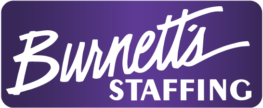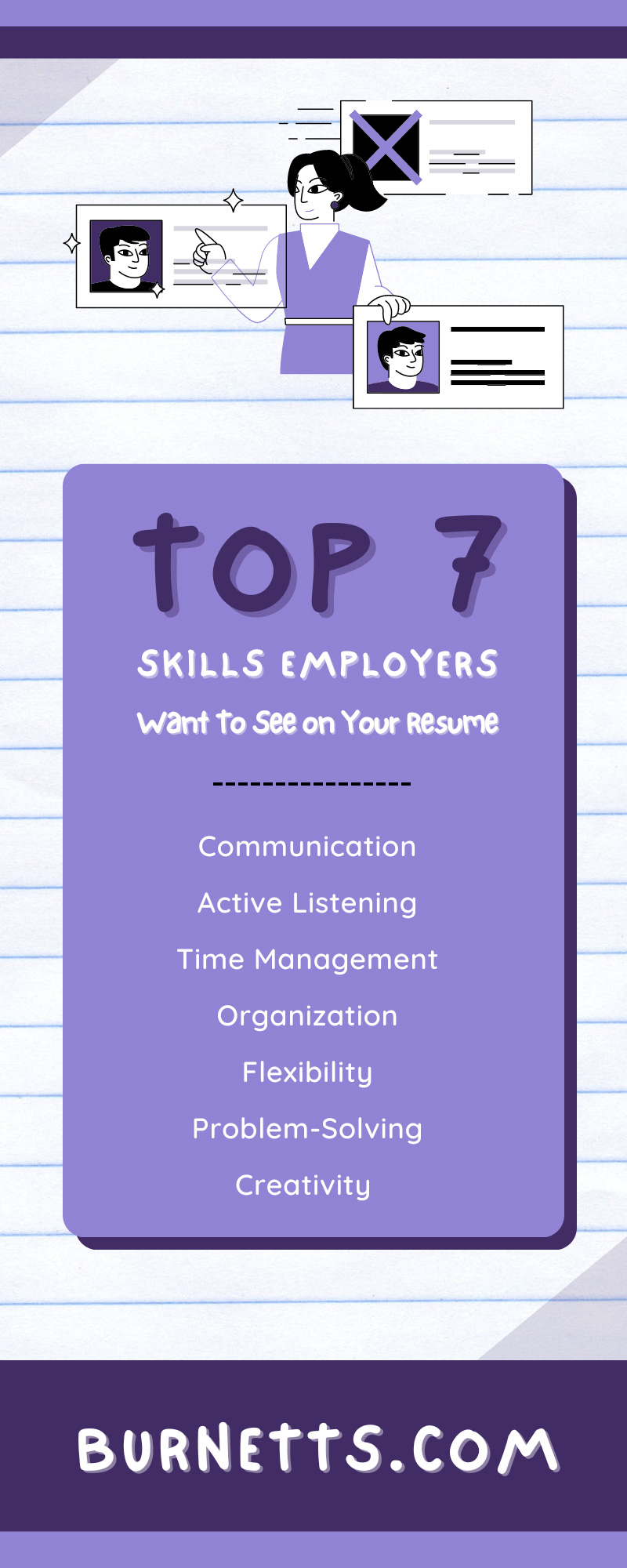The job market is tough as you must constantly compete with other candidates for the same position. By making yourself stand out as a top contender, you increase your odds of landing the job since more employers will review your resume. One of the best ways to capture the attention of hiring managers is by showing off the incredible assets you possess. As you create your resume, ensure you list the top skills employers want to see on your resume.
7 Soft Skills Employers Prefer Seeing
Soft skills are important because you can apply them to any role regardless of the industry. Employers often examine all listed soft skills on a resume to better understand whether the individual appears well-rounded. Seven key soft skills to add to your resume include:
- Communication
- Active listening
- Time management
- Organization
- Flexibility
- Problem-solving
- Creativity
These skills are vital because they demonstrate that you possess the necessary attributes to excel in your role and handle stressful situations. Furthermore, soft skills show that you can collaborate with other professionals and work independently when needed.
Communication
Employers want employees who can articulate their thoughts and ideas effectively; this skill also goes hand-in-hand with collaboration. It’s important to remember that communication is a two-way street. While speaking and presenting skills are essential, so are listening and nonverbal communication skills.
Think of a time you had to work through a misunderstanding in the professional world when listing communication skills on your resume. Note the moments of miscommunication in college and how you used your incredible communicative skills to work through the issue if you’re a recent college graduate.
Active Listening
Active listening is a skill that allows individuals to fully understand what someone communicates to them. Employers prefer this skill as it shows that the employee is paying attention and helps avoid misunderstandings. Actively listening during job interviews, team meetings, and client interactions is essential.
Keep in mind that active listening often means asking clarifying questions during a conversation by restating information from the speaker.
Time Management
Employers appreciate employees who can manage their time effectively. Time management skills help employees to prioritize their tasks and complete them efficiently.
Bonus points to employees who are also self-starters, meaning they don’t need constant supervision! Becoming a self-starter often requires amazing time management along with a sense of independence.
Organization
Being organized is a soft skill that employers love. It shows that employees can handle multiple tasks simultaneously and keep track of all the details. Organized employees are likely to be more productive than disorganized ones, which helps the company save time and money. Having superb organizational skills also enables you to note due dates for tasks to turn everything in early or on time.
Flexibility
Flexibility is the ability to adapt to changing situations. Employers want employees who can think on their feet and react to different scenarios. This skill is especially important for industries facing unexpected circumstances requiring quick thinking and improvisation.
Problem-Solving
Solving problems effectively is another top skill employers want to see on your resume. It shows adaptability and the ability to think critically. You can hone your problem-solving skills by planning, creating, and testing solutions and refining them until you reach the best possible outcome.
Creativity
Creative thinking helps us see the bigger picture and develop innovative solutions to problems we may encounter. Employers often prefer this mindset because it allows the individual to get more done and benefits the company.
Don’t Overlook Hard Skills
As you detail the top skills employers want to see on your resume, never overlook the importance of your hard skills. Unlike soft skills, listing specific hard skills you need to add is a bit trickier as it varies for every industry. You’ll need hard skills such as negotiation, customer analysis, and experience if you work in sales. On the other hand, an accountant needs hard skills such as data analysis and proficiency in Excel.
Enhancing Hard Skills
While we can always improve our soft skills, most of us learn them through experience. You can’t take a college course on time management, but you can discover ways to enhance your skills by completing projects. On the other hand, we learn and improve our hard skills by boosting our knowledge base; working with a mentor or taking a class are two amazing ways to do this.
Work With a Mentor
Consider getting a mentor to learn more about the field if you don’t know which hard skills you need in a specific industry. You’ll build crucial hard skills as you educate yourself.
Take a Class
You might need to improve specific hard skills to thrive in your desired industry. As an accountant, you may need to enroll in a course on data analytics. Taking a class also helps you familiarize yourself with the software often used in the industry, which boosts your resume.
How To Show Skills on Resumes
Showcasing your skills on your resume is crucial. List the skill alongside an achievement that shows how you’ve exemplified it in the past. For example, instead of writing “good time management skills,” you should write “managed multiple projects simultaneously, achieving all deadlines.” This specificity is an effective way to showcase your skills on a resume.
Getting more detailed about how you explain your skills also gives hiring managers talking points during an interview. They can ask you to further explain the projects you worked on and examine what it says about your time management skills.
You also give potential employers specific information to ask if they contact your previous employer or referrals. Additionally, providing brief examples makes your resume appear more professional.
Pro Tip
Avoid getting overly detailed in your resume. Generally, explanations are a single line across the page; most people use bullets. Our previous example, “managed multiple projects simultaneously, achieving all deadlines,” is an ideal length.
Contact an Employment Agency
Finding work isn’t always easy as you sift through countless job listings. Staffing services, such as Burnett’s Staffing, work to help job seekers find the ideal position. We can also help you craft the best resume and provide career counseling. Get help from the experts so you can find your next career!


